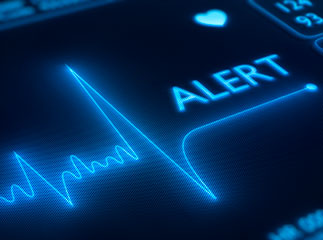Overview

There are ongoing discussions surrounding cardiovascular (CV) safety assessments of drugs in development. Although the implementation of the ICH E14/S7B guidelines is considered a success, proarrhythmia risk assessment continues to be one of the most important and challenging issues in drug development. The proarrhythmia risk assessment regulatory paradigm entered a new era in 2015 with the release of the ICH-E14 Q&A R3 document, which allows the use of Concentration Response Modeling of QTc data in lieu of the E14 ‘by-time point’ analysis as the primary basis for regulatory decisions. This revision effectively allows pharmaceutical sponsors to use routine early phase (SAD/MAD) studies, with intensive PK and QT data collection, to meet current regulatory requirements instead of the E14 mandated Thorough QT/QTc study.
Concomitantly, development of new non-clinical CV risk assessment strategies, such as the use of induced pluripotent stem cells (iPS) derived cardiomyocyte and in silico cardiac models have been making advances both in Japan and abroad.
In addition to the well documented proarrhythmia risk, other CV risks including those associated with drug-induced changes in blood pressure, cardiac function and cardiomyocyte (structure), have been recognized as important issues requiring attention and appropriate assessment during drug development.
Furthermore, the increasing importance of the emerging field of cardio-oncology, reflects the success of new cancer therapies in improving life expectancy of cancer patients on one hand, and the recognized CV risks of innovative anticancer drugs including molecular targeted therapies on the other hand. A wide range of cardiotoxicities associated with existing and new anticancer therapies were reported, including cardiomyocyte injury and heart failure, vascular injury and hypertension or thrombosis, accelerated coronary artery disease and proarrhythmia, amongst others.
In this workshop, we will invite clinical, industry and regulatory experts to discuss a range of hot topics, including: Non-clinical proarrhythmia risk assessment using iPS derived cardiomyocyte and in silico models such as CiPA, JiCSA and iSMART; Clinical proarrhythmia risk assessment models and the implementation of QTc Concentration Response Modeling in Japan and new ECG biomarkers; A research update and future directions for the assessment of cardiac contractile function; A cardio-oncology session including mechanism of drug-induced cardiotoxicity, and strategies for early detection and assessment of cardiotoxicity.
The 7th Cardiac Safety Workshop in Japan will provide a unique opportunity to learn of and discuss the current state and future directions of CV risk assessments and how to prepare for a new regulatory paradigm of cardiovascular safety assessments. We look forward to welcoming you to the workshop
Featured
Want to learn more about 7th DIA Cardiac Safety Workshop in Japan? You've come to the right site!
Program Committee
-
Kaori Shinagawa, MD, PhD Senior Scientist for Clinical Medicine, Office of New Drug II
Pharmaceuticals and Medical Devices Agency (PMDA), Japan -
Katsuyoshi Chiba, PhD Senior Director and Head, Group III, Medicinal Safety Research Laboratories, R&D
Daiichi Sankyo Co., Ltd., Japan -
 Naoki Furuyama, DVM, PhD Medical Information & Communication, Japan Medical Affairs
Naoki Furuyama, DVM, PhD Medical Information & Communication, Japan Medical Affairs
Takeda Pharmaceutical Company Limited, Japan -
Yasunari Kanda, PhD Head of Division of Pharmacology
National Institute of Health Sciences, Japan -
Yuji Kumagai, MD, PhD Professor, Kitasato Clinical Research Center
Kitasato University Hospital, Japan -
Boaz Mendzelevski, MD Consultant Cardiologist
Cardiac Safety Consultants Ltd., United Kingdom -
Atsushi Sugiyama, MD, PhD Professor and Chairman, Department of Pharmacology
Toho University Faculty of Medicine, Japan -
 Kyosuke Takeshita, MD, PhD Department of Clinical Laboratory Medicine
Kyosuke Takeshita, MD, PhD Department of Clinical Laboratory Medicine
Saitama Medical Center, Saitama Medical University, Japan
Have an account?
